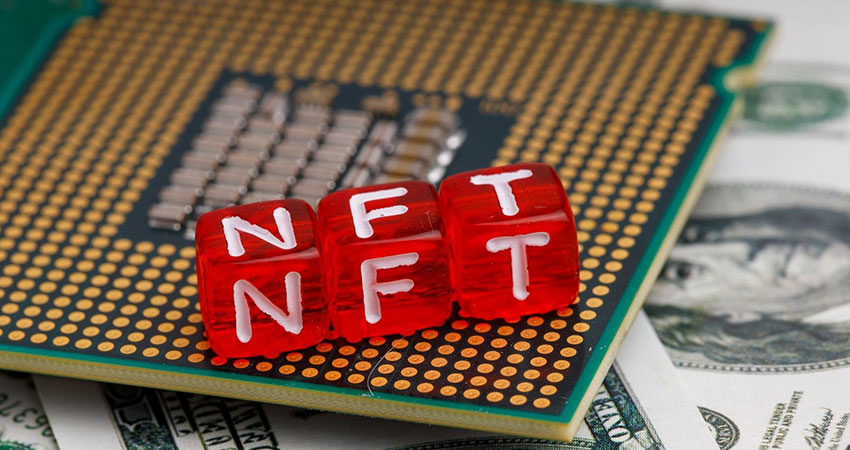Photo credit: Andrey Metelev on Unsplash
NFTs are currently the hottest thing in tech, and many ecommerce businesses are incorporating them into their business strategies. When we consider the staggering amounts some of them have demanded, this should come as absolutely no surprise. Even ex-Chicago Bulls superstar Scottie Pippin is bullish on NFTs, with a sneaker offering.
Are NFTs really the future of ecommerce, and how are they expected to impact the industry? Let’s find out!
What Is an NFT?
NFTs are non-fungible tokens, and they can’t be exchanged for other items. For example, you would be able to exchange a $20 bill for 20 one-dollar bills. But if you happened to have a twenty that has been signed by Marko Jaric – it would become one of a kind and non-fungible.
NFTs are strictly digital; they can be audio or video files, digital art, and so on. When you buy one, you are not only the owner of the license to use it – you become the owner of the actual product. You can hold on to it for as long as you’d like or sell it to someone else.
Why Are NFTs Popular?
The idea of owning a digital-only product might sound a bit ludicrous. After all, why would anyone invest in something they can’t touch or feel?
However, NFTs have already entered the mainstream and have been auctioned by two major houses, Sotheby’s and Christie’s. Major fashion brands are also jumping on the bandwagon, like Gucci with their first-ever digital-only sneaker.
While they will never replace physical products, much like other art forms, they are expected to have very high earning potential. Imagine owning a piece of digital music: While it will never replace your CD or vinyl album, it is still a product you’re able to call your possession.
As an ecommerce business, you may see NFTs as a threat. However, they provide plenty of options. They can even increase the value of your ecommerce business if you play your cards right.
Bundle NFTs with Physical Products
As an ecommerce business, you can cater to the early adopters of the metaverse by offering bundles of physical products and NFTs. As people will want their avatars to own the kind of products they themselves own in the real world, you can capitalize on their interests early on.
Nike has already started producing its own “cryptokicks” and creating its own blockchain system that gives customers the opportunity to both own the product in 3D and get their hands on the corresponding NFT too.
Balmain and Gucci are doing the same. And while the former is still charging relatively high prices for their new digital trainers, Gucci sells theirs for $11.99, making it much easier for the average consumer to get their hands on a signature Gucci product.
You can do the same. Offer an NFT version of the product you are selling to ensure all of the digital and offline needs of your customers are met.
Offer Instant Gratification
The one thing ecommerce lacks is the ability to instantly gratify a customer’s needs. True, you are able to offer consumers that sense of joy of completing a purchase from anywhere and at any time. But there’s still shipping involved.
NFTs can fill this experience gap if you offer them alongside the physical product that will take some time to arrive. Customers will become the immediate owners of the NFT, so they can show it off to their friends and showcase it across various aspects of their digital presence.
This can also increase your profit margins and set you apart from your competitors as a pioneer in early adoption and futureproofing.
Provide Something Unique and Collectible
You can take your loyalty programs a step further by allowing points to be exchanged for NFTs. Customers enjoy the discounts loyalty programs usually offer, but they can get boring after a while. Plus, they are all pretty much the same; very rarely does a brand have a truly unique loyalty program.
But when you offer an NFT – a collectible, an entirely unique product that can’t be obtained from anywhere else – you will be playing the card of exclusivity and scarcity. It’s a way to provide much more perceived value.
The NBA is already offering this kind of experience with their Moments platform, where fans collect and trade Top Shot Moments. And as we know just how invested diehard fans can be in a unique item, the league is already seeing a rise in popularity and trade.
Final Thoughts
While we don’t expect NFTs to replace physical products any time soon, they can add to your offer and make your brand more appealing to a digitally-oriented customer base. And sure, you’ll need some time to get used to the tech, but it can help you grow and expand in new ways, so it’s definitely worth the effort.
[Editor’s note: this post was originally published in March 2022 and has been updated]
Sarah Kaminski is a business manager and social media marketer

